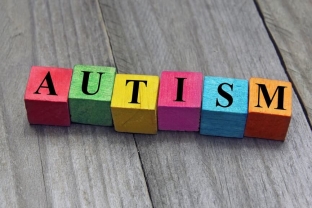Autism in children – it is a complex developmental disorder characterized by three main features: problems with social interaction, impaired verbal and non-verbal communication, a pattern of repetitive behavior, and narrow, limited interests of the child. This diagnosis is made to one of 88 children, and specialists are constantly looking for the reasons for the appearance of such deviations in children. We will talk about the main symptoms and signs of autism in children, the alleged causes of its occurrence and other important points.
Autism in children – signs and symptoms of developmental disorders
Source names the main behavioral pattern of a child with autism, which manifests itself in fear, aggression and negativity. Autism in children can be recognized already at the age of 3 months, so it is very important not to miss the first signs of deviations and contact a specialist in time. The sooner the disease is recognized, the more likely it is that its course will be slowed down.
Parents should be alert to the following behavioral patterns of a young child:
- the child does not recognize people, does not meet acquaintances with a smile;
- during breastfeeding, the baby suckles weakly at the breast or falls asleep;
- excessive fear of noise;
- the child gets stuck on one subject for too long, does not show interest in what is happening around;
- child does not respond to new toys;
- it is difficult to calm a child after stress, fright.
The presence of the above symptoms does not necessarily indicate a developmental disorder, but a neurologist or psychiatrist will be able to accurately determine their presence. Do not be too lazy to contact a specialist for reinsurance.
The symptoms of autism in children are most pronounced at preschool age (3-5 years). People with autism have difficulty using language, building relationships, and interacting with the outside world. This disease remains with a person for life, but many people learn to control their behavior to a certain extent.

The cause of autism in children is not well established
Although autism in children – the result of neurological abnormalities, in most cases the cause of such problems with the nervous system is not known. Research results point to the genetic component of the disease. It is most likely that the external environment, immunological and metabolic factors also influence the development of the disease. Here's what the experts think about it:
- A specific gene or genetic defect has not been identified for autism in children. Researchers suggest that there are a number of different genes that together increase the risk of developing autism. Families with one autistic child have a low risk of having a second child with this type of disorder.
- In some children, autism is associated with a specific disease, such as a metabolic disorder (fnilketonuria), intrauterine infections (rubella, CMV), genetic disorders (tuberous sclerosis), neurological diseases, brain abnormalities. However, by themselves, these diseases do not cause autism in children.
- Environmental factors may interact with genetic factors and increase the risk of autism in some children.
There are many theories about the causes of autism, but some of them have been refuted, namely:
- emotional trauma in early childhood;
- vaccination.
When to see a doctor about suspected autism in children
Autism in children and adults – a disease surrounded by myths and generalizations. Some mistakenly believe that people with autism never show emotion, smile or laugh, make eye contact, talk or show affection. Each person is unique and autism can manifest itself in different ways.
The list of symptoms and behaviors associated with autism is quite long, and each affected person has their own unique combination of these features.
Some examples of child behavior that require medical attention:
- the child is removed from the outside world;
- child does not play or communicate with others;
- problems speaking or understanding speech;
- uncontrollable temper tantrums.
The National Institute of Child Health and Human Development (NICHD) recommends seeing a doctor if your child:
- does not babble at 1 year of age;
- does not gesticulate (points at objects, waves a pen, etc.) by 1 year;
- hadn't spoken a single word at 16 months of age;
- hadn't spoken a 2-word phrase by age 2;
- loses social skills or stops talking at any age.
If you encounter at least one of the above points, do not delay visiting a specialist, as such problems may indicate not only autism in children, but also other types of disorders. Timely diagnosis and treatment are very important for any developmental disorders of the child.






Add a comment